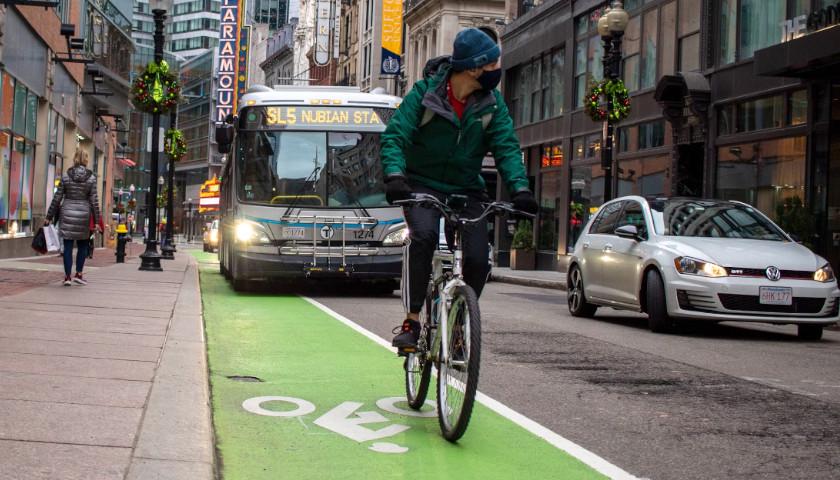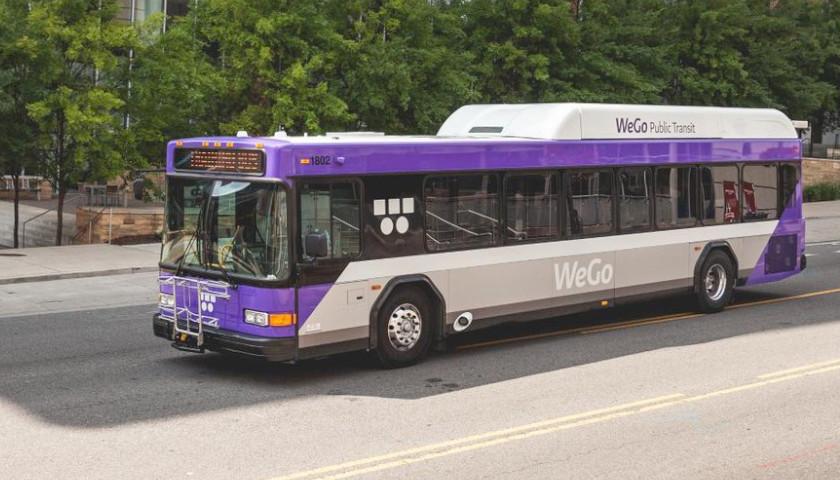Metro Nashville Council Member Jeff Eslick explained how one aspect of Mayor Freddie O’Connell’s transit plan, which will be on the November ballot, would help control the flow of traffic for drivers in Music City.
Last month, the mayor officially announced that his long-awaited transit plan will be on the November 5 ballot, however, he did not release any information regarding what the plan entails other than saying it will improve “sidewalks, signals, service, and safety.”
While O’Connell’s transit plan has been branded a “greendoggle,” Eslick shed light on how one aspect of the plan – smart lights – would help control the flow of traffic for drivers in the city.
Smart lights are traditional traffic lights that work with a variety of sensors and artificial intelligence to intelligently route vehicle and pedestrian traffic in real time.
Eslick said the addition of more smart lights around Davidson County is his “favorite part” of the mayor’s transit plan.
“They would have lights that have the ability to understand if there is traffic in an oncoming way so that if there isn’t a vehicle waiting to turn, then the light doesn’t turn and it continues. If you’re on Gallatin Road or Lebanon Road or one of the major roads and the light turns red and then it turns green for two side streets where there’s no one turning, you’re just waiting for no reason when traffic could have kept going. This would eliminate that or at least cut it down,” Eslick explained on Thursday’s edition of The Michael Patrick Leahy Show.
“I think we waste a lot of time in traffic due to unforced errors…To me, that is the major part of this plan that would help traffic,” Eslick added.
In regards to adding more bus routes, which many have speculated will be included in O’Connell’s plan, Eslick said he believes only more people would be motivated to ride the bus if routes continue into neighboring counties, as many individuals who work in the city commute from counties like Wilson County, Sumner County, Williamson County, and Rutherford County.
“If you start looking at it, we have a lot of people that come into town from Wilson, Williamson, Rutherford, all the other counties that touch, and work here. So if the bus line doesn’t go to a point where they can get close to home, then they’re just going to drive. So you have to find a way to get people from outside the county or right at the county line. It needs to be a parking lot where they can park and ride and I think that rapid transit would help with that,” Eslick said.
“How effective is it? That’s a whole different question because I don’t believe we’re in an area of the country where we like to ride buses as much as we like to drive cars,” Eslick added.
Pivoting to aspects of transportation not included in the mayor’s transit plan, Eslick gave an update on his work to rework bike lane delineators around the city.
In January, Eslick said he was going to look into reworking portions of bike lane delineators, described by the councilman as the “white poles on the side of the road that keep the bike lane separated from the regular road,” that have been reported by some of his constituents as obstructive, especially when it comes to those driving buses and larger, taller vehicles.
Eslick said he recently spoke with members of the Nashville Department of Transportation (NDOT) who admitted that the point of placing the delineators near entrances and exits is to slow down drivers when making turns.
“I found out some interesting stuff. One, they put [the delineators] in near entrances and exits with the strategy of hardening turns or hardening intersections. So what they’re trying to do is slow people down by putting these posts in as obstacles, almost,” Eslick explained.
Eslick said that while he and NDOT did not agree on the placement of the bike lane delineators, the councilman acknowledged that the department is being cooperative and hopes to come to an agreement in the future on addressing the issue.
“I feel like in a way we’re punishing drivers for bicyclists that don’t exist yet,” Eslick said.
– – –
Kaitlin Housler is a reporter at The Tennessee Star and The Star News Network. Follow Kaitlin on X / Twitter.






No one wants to ride the bus, unless they have to. Why expose yourself to the sea of humanity if you don’t have to? Not to mention the wasted, additional time using mass transit.
And while smart lights sound good, who’s going to maintain and repair them? You already can’t get a cop to an accident scene on the same day it happens – what makes you think these lights will be maintained? Where will the money to train the people come from? We’ve been down this road before – same “stuff” – different day.